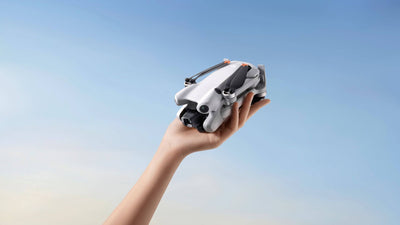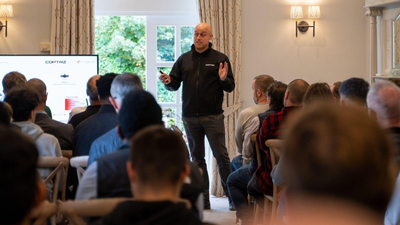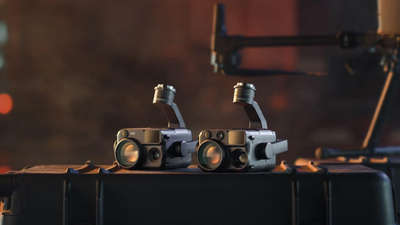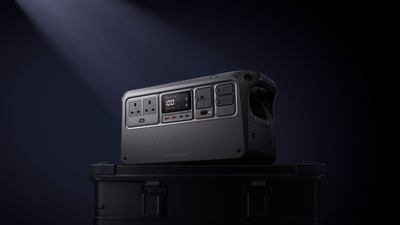What Drones Need A Licence?
- by Stefan Gandhi
The drone industry in the UK is evolving rapidly, with more individuals and organisations taking to the skies for photography, surveying, inspections and recreation. With this growth comes the crucial question: what drones need a licence? Whether you're a first-time flyer or an experienced professional, understanding the legal obligations around drone use is essential for safe and compliant operations.
Drone rules explained
In the UK, drones are regulated not by a single licence, but through a system of registrations and certifications. These requirements are determined by the drone’s weight, its features and how and where it will be flown.
There are two main types of ID you may need:
Flyer ID: This is issued to the person who flies the drone. To get it, you must pass a short online theory test on safety and airspace awareness. A Flyer ID is mandatory for anyone flying a drone that weighs 250 grams or more.
Operator ID: This is for the person or organisation responsible for the drone. It is required for drones that have a camera or weigh 250 grams or more. The Operator ID must be visibly displayed on the drone.
When you do not need a licence
Some drones are exempt from registration. If a drone weighs less than 250 grams and does not have a camera, you do not need either a Flyer ID or an Operator ID. These types are often sold as toys or basic starter models. However, all pilots, regardless of drone type, must follow the UK’s drone safety code and fly responsibly.
Flying closer to people or in complex spaces
If your flying intentions go beyond low-risk environments, additional training and certification are required.
A2 Certificate of Competency (A2 CofC): This qualification allows you to fly closer to people than the basic open category rules permit. It involves online training and a theory test. This is suitable for pilots who want to operate in more built-up areas while maintaining visual line of sight.
General Visual Line of Sight Certificate (GVC): This certificate is necessary for higher-risk or commercial flights that do not meet the open category criteria. It requires both theory and practical assessments. Holding a GVC allows you to apply for operational authorisation, enabling more advanced flying scenarios.
Categories of drone operations
UK drone regulations are structured around three categories, each based on the level of risk involved.
Open category
This covers low-risk operations, often in rural or controlled areas. It is divided into three subcategories based on how close the drone can fly to people. Most hobbyist and non-specialist commercial use fits within this category.
Specific category
This includes flights that pose more risk or take place in more challenging environments. Pilots need a GVC and operational authorisation. This category covers tasks such as surveying near buildings or inspecting infrastructure in populated areas.
Certified category
This applies to the highest-risk drone operations, such as flying over crowds or using very large drones. It is typically used for industrial, commercial or governmental operations requiring specialist equipment and planning.
What different types of users need
Recreational users
If you are flying for leisure, your drone type and how you use it will determine what you need. Drones under 250 grams without cameras require no registration. However, if the drone has a camera or is heavier, you must have an Operator ID and may also need a Flyer ID. Flying in quiet, open spaces typically keeps you within the open category and does not require further certification.
Professional users
Commercial users must consider the airspace, proximity to people, and the purpose of the operation. Heavier drones, urban environments, or sensitive tasks will often move your flights into the specific category. In these cases, the A2 CofC or GVC will be required. Operators should also have insurance and a safety management system in place.
Frequently Asked Questions
Do I need a licence for all drones?
Not all drones require registration. Drones under 250 grams with no camera do not need a Flyer or Operator ID. However, any drone with a camera, regardless of weight, does require an Operator ID.
Is it legal to fly a drone in residential areas?
Only under certain conditions. Flying in residential areas typically requires the drone to meet open category rules or for the pilot to hold an A2 CofC or GVC depending on proximity to people and buildings.
What happens if I fly without registration?
Flying a drone without the correct registration or certification can result in fines or legal action. It may also void insurance policies and place others at risk.
Do children need their own licence?
Children can fly drones under supervision. The supervising adult must hold the necessary Operator ID, and if required, the Flyer ID.
How long is drone registration valid?
The Flyer ID is valid for five years. The Operator ID must be renewed every 12 months.
Conclusion
Whether you're exploring drone photography or managing aerial data for a business, understanding what registrations or certifications you need is essential. The rules are designed to keep the skies safe while supporting the exciting potential of drones in everyday life and industry.
Ready to take the next step in your drone journey? Visit the Coptrz official online store here to explore a full range of drones, accessories, training courses and more to match your needs. Whether you are just starting out or expanding a commercial fleet, Coptrz has everything you need to get airborne with confidence.




